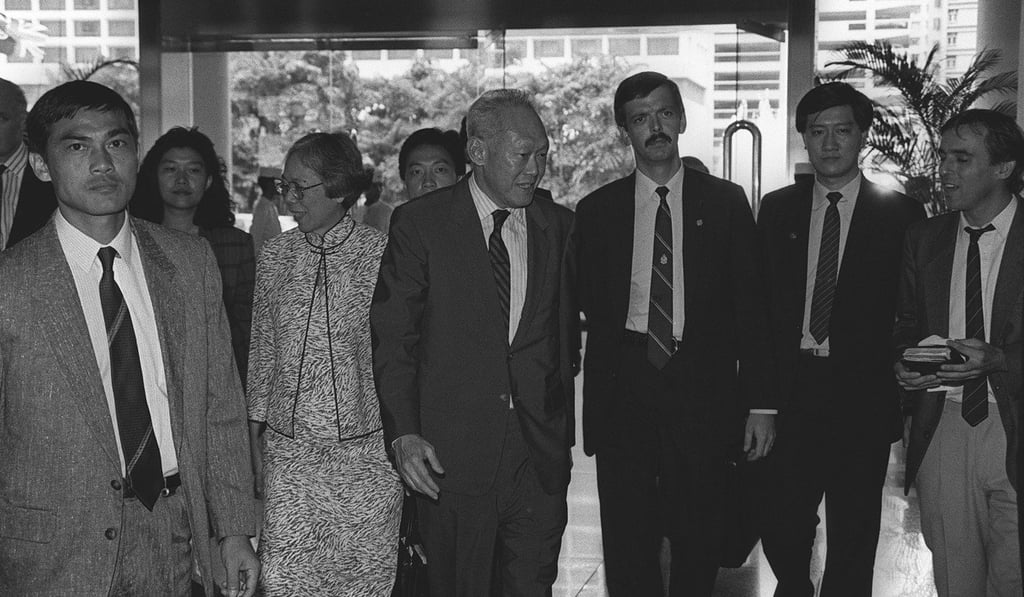After Tiananmen crackdown, Singapore’s Lee Kuan Yew said 200,000 influential Hongkongers should ‘band together’ and bargain if Beijing interfered in city’s affairs
- Declassified British files show Lee told Margaret Thatcher he met delegation of Hong Kong Exco and Legco members in 1989

Singapore’s founding father Lee Kuan Yew had a piece of advice for Hongkongers in the wake of the Tiananmen crackdown: “band together” 200,000 people on whom the city’s success hinged and bargain with China by threatening to leave if Beijing interfered with Hong Kong’s affairs.
The Southeast Asian strongman said China would have to listen to the views of Hong Kong if the city adopted a “non-confrontational approach” to dealing with Beijing, rather than “fighting China”.
Lee made the suggestion when he met a delegation of the city’s Executive Council and Legislative Council members soon after the Chinese government forcibly suppressed pro-democracy protesters in Beijing in 1989. He said Hongkongers should plead or negotiate with China.
His remarks were documented in a note on October 20, 1989, written by Charles Powell, private secretary to then British prime minister Margaret Thatcher.

According to files declassified this week from Britain’s National Archives in London, Lee, then prime minister of Singapore, discussed the situation in Hong Kong and China with Thatcher at a meeting in Singapore on October 20, 1989.